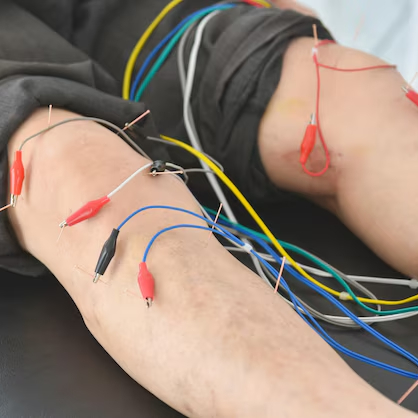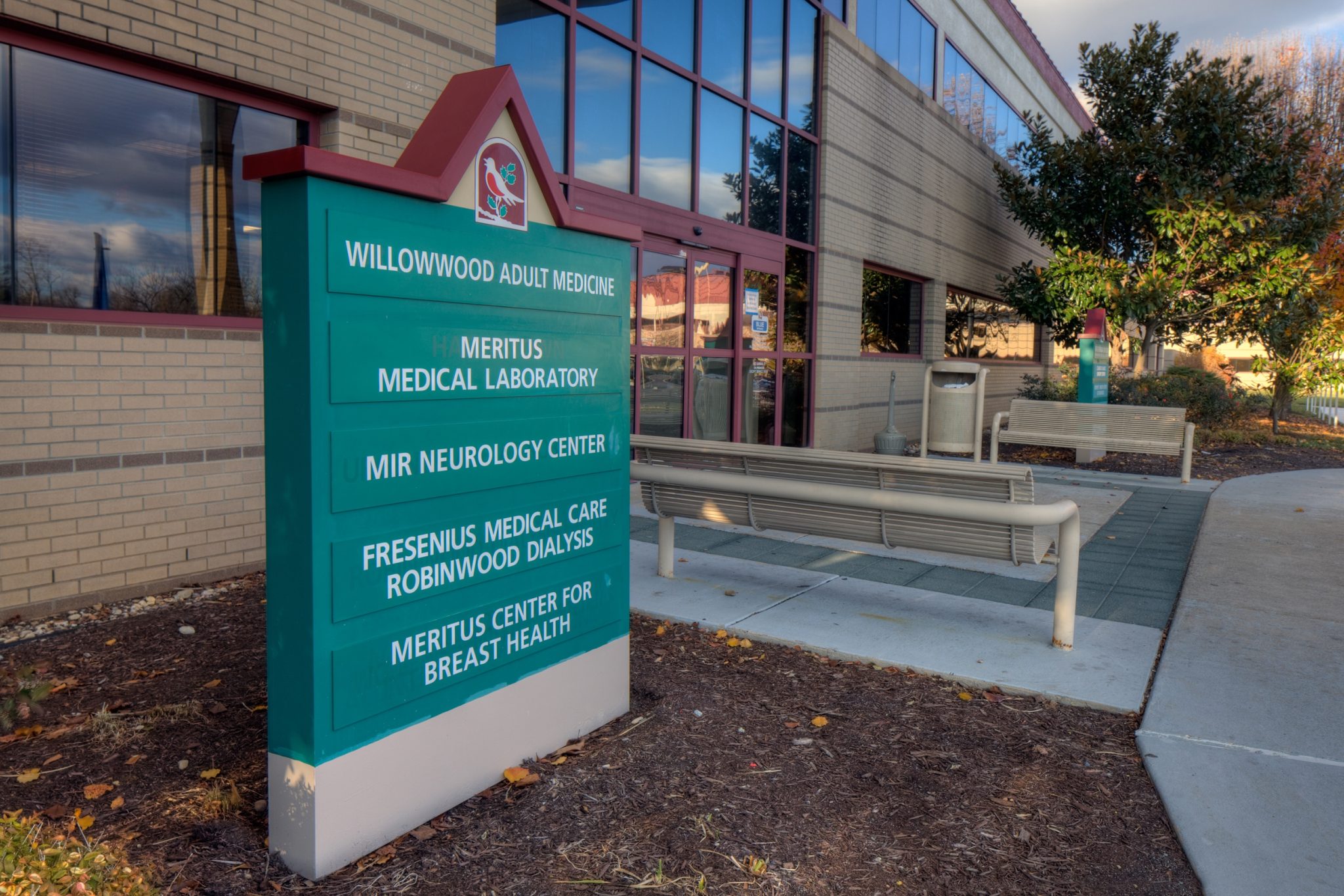We're Hiring! Join Our Team as a Nurse Practitioner - Apply Now. to Make a Difference in Patient Care!
Pinched Nerves

Pinched Nerve Treatment and Management Services
A pinched nerve occurs when excessive pressure is applied to a nerve by surrounding tissues such as muscles, tendons, bones, or cartilage. This pressure can interfere with the nerve’s normal function, causing pain, tingling, numbness, or weakness. Pinched nerves are often found in the neck, back, or arms, but they can occur anywhere in the body. If left untreated, a pinched nerve can lead to chronic discomfort and complications. At our clinic, we specialize in diagnosing and treating pinched nerves, providing tailored treatment plans to help relieve pain, reduce inflammation, and restore proper nerve function.
What is a Pinched Nerve?
A pinched nerve, also referred to as nerve compression, occurs when surrounding tissues, such as muscle, bone, or cartilage, put pressure on a nerve. This pressure can affect how the nerve functions, leading to symptoms such as pain, tingling, numbness, and weakness. While pinched nerves are most commonly seen in the spine—especially in the neck (cervical) or lower back (lumbar)—they can also occur in other areas of the body. Common symptoms include radiating pain, muscle weakness, and numbness in the area served by the affected nerve.
Pinched nerves are typically caused by factors such as herniated discs, bone spurs, or muscle tension. Depending on the severity and location of the compression, symptoms may range from mild discomfort to severe pain that significantly affects daily activities.
Common Causes of Pinched Nerves
There are several conditions and factors that can lead to a pinched nerve:
- Herniated Discs: One of the most common causes of a pinched nerve, a herniated disc occurs when the soft center of a spinal disc pushes through a crack in the outer layer and presses on nearby nerves.
- Bone Spurs: Over time, bone growths, also known as spurs, can develop in the spine or joints. These can cause pressure on the nerve roots, leading to pain and discomfort.
- Muscle Strain or Overuse: Muscles that are tense, inflamed, or overworked can put pressure on the nerves, leading to irritation. This is particularly common in the neck and back.
- Repetitive Movements: Repetitive actions, such as typing, lifting, or certain sports, can cause muscle or tendon inflammation, contributing to nerve compression. Conditions like carpal tunnel syndrome are examples of repetitive movement-induced pinched nerves.
- Obesity: Extra weight can put additional stress on the spine and the nerves in the back and neck, increasing the risk of nerve compression.
- Aging: As we age, the discs in the spine can wear down, and bone spurs can develop, which may press on nerves. This leads to a higher risk of pinched nerves in older adults.
Symptoms of a Pinched Nerve
The symptoms of a pinched nerve can vary based on its location, the extent of the compression, and the nerves affected. Common symptoms include:
- Pain: Pain can be sharp or aching and often radiates along the path of the affected nerve. For example, in cases of a pinched nerve in the neck, pain may radiate down into the shoulders or arms (cervical radiculopathy). A pinched nerve in the lower back can cause pain to radiate into the buttocks and legs (sciatica).
- Tingling or Numbness: You may experience a “pins and needles” sensation or loss of sensation in the affected area. This can interfere with your ability to feel or use the affected limb properly.
- Weakness: If the nerve affects muscles, it may cause weakness or difficulty controlling certain movements. For example, a pinched nerve in the neck can make it harder to grip objects or perform fine motor tasks.
- Worsening Symptoms with Movement: Symptoms often worsen when certain movements or postures compress the nerve further, such as bending or twisting the body.
If left untreated, the symptoms of a pinched nerve can become more intense and may lead to long-term nerve damage.
Diagnosis of Pinched Nerves
A thorough diagnostic process is essential to identify the cause of a pinched nerve and create an effective treatment plan. Our diagnostic approach includes:
- Medical History and Symptom Review: We review your symptoms, including when they started, their severity, and how they affect your daily life. We also inquire about any potential causes, such as recent injuries or repetitive movements.
- Physical and Neurological Exam: A physical examination allows us to assess reflexes, strength, and sensation in the affected area. We check for signs of nerve damage and evaluate your range of motion.
- Imaging Tests: To get a detailed view of the spine or other affected areas, we may recommend X-rays, MRI scans, or CT scans. These imaging techniques help us detect conditions such as herniated discs, bone spurs, or other structural abnormalities that may be putting pressure on the nerve.
- Electromyography (EMG): This test measures the electrical activity in muscles and nerves, helping to identify areas of nerve compression and determine the extent of nerve damage.
A proper diagnosis helps us understand the underlying cause of the pinched nerve and select the most appropriate treatment.
Treatment Options for Pinched Nerves
At our clinic, we offer several treatment options to relieve pain, reduce inflammation, and restore normal nerve function. Depending on the severity of the pinched nerve, treatment may include:
1. Conservative Treatments
- Rest and Activity Modification: Resting the affected area and avoiding movements that aggravate symptoms can allow the nerve to heal.
- Physical Therapy: Targeted physical therapy can strengthen the muscles around the nerve, improve posture, and reduce pressure on the affected area. Stretching and strengthening exercises may be prescribed to alleviate pain and prevent further injury.
- Medications: Over-the-counter pain medications like NSAIDs or prescribed medications, such as oral steroids, can reduce inflammation and manage pain.
- Hot and Cold Therapy: Applying heat or ice to the affected area can help reduce inflammation, relieve pain, and promote healing.
2. Interventional Treatments
- Epidural Steroid Injections: For persistent or severe pain, corticosteroid injections can help reduce inflammation around the nerve and provide temporary pain relief.
- Nerve Blocks: In some cases, targeted nerve blocks can be used to numb the affected area and provide relief from pain.
3. Surgical Treatments
If conservative treatments are ineffective and symptoms persist, surgery may be necessary. Surgical options may include:
- Discectomy: Removal of part of a herniated disc to relieve pressure on the nerve.
- Laminectomy: Removal of part of the vertebrae to create more space for the nerve, alleviating pressure.
- Spinal Fusion: If there is significant structural damage to the spine, spinal fusion may be performed to stabilize the affected area.
Why Choose Our Pinched Nerve Treatment Services?
- Expert Diagnosis and Care
Our experienced team of specialists offers thorough evaluations and advanced diagnostic tools to accurately identify the cause of your pinched nerve. - Customized Treatment Plans
We tailor each treatment plan to the individual needs of the patient, focusing on relieving symptoms and promoting long-term recovery. - Comprehensive Approach
We offer a full range of treatments, including physical therapy, medications, interventional procedures, and surgery, to help you find the relief you need. - Ongoing Support
Our team provides continuous support and guidance throughout your recovery process, helping you manage symptoms and avoid future issues.
Contact Us for Pinched Nerve Treatment
If you’re experiencing symptoms of a pinched nerve, contact our clinic today to schedule a consultation. Our team is dedicated to providing effective, personalized care to relieve your pain and improve your overall well-being. Let us help you get back to living a pain-free, active life.

























